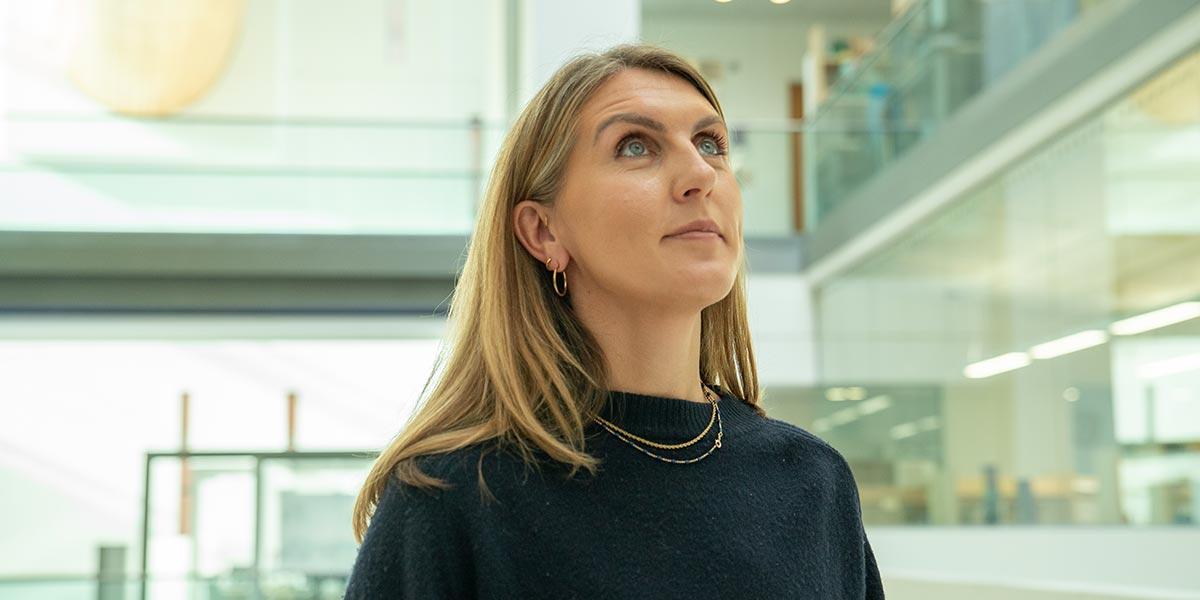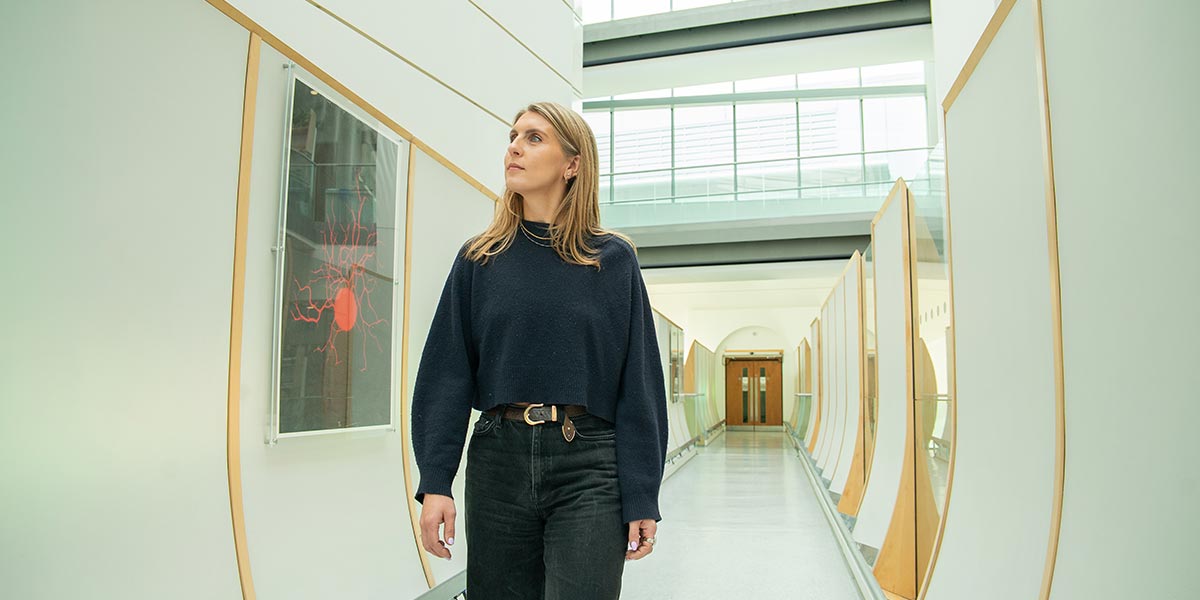Turning loss into life-saving research. Challenge accepted.
After losing her sister, Natalie, to a brain haemorrhage at just 26, Fiona Moss faced heartbreak no family should endure. But from that tragedy came a mission - to stop others from going through the same.
Through the Natalie Kate Moss Trust, Fiona is driving vital research into brain haemorrhage prevention and treatment, in partnership with The University of Manchester. Together, they’re taking on a condition that affects millions yet remains underfunded and under-discussed. Challenge accepted.

When Fiona Moss lost her sister, Natalie, to a sudden brain haemorrhage in 2011, her world changed forever. Natalie had been 26, healthy and happy - with no warning signs.
Determined that her death wouldn’t be in vain, Fiona and her family created the Natalie Kate Moss Trust to honour her memory and fund research where there was none. Their goal: to prevent brain haemorrhages and save lives through early detection and better treatment.
“If you compare it to other conditions, like breast cancer and other types of cancers, diabetes, etc, there have been a lot of advancements. We haven’t seen that with brain haemorrhage research. That's why it's so important that we focus on this.”
The challenge is enormous. Brain haemorrhages are a subtype of stroke and one of the most deadly, only 60% of people survive the first month post-stroke. Every year, there are 4.6 million cases worldwide - more than lung and breast cancer combined - yet research funding has remained stagnant for decades.
That’s why Fiona turned to The University of Manchester, where Natalie had studied, to ask what could be done.
The University responded immediately, establishing a dedicated research project in haemorrhagic stroke. Through Fiona’s support and the Trust’s early funding, Manchester leveraged further grants and grew a research team from almost nothing to over 30 scientists.

Together, they established the Geoffrey Jefferson Brain Research Centre, a pioneering hub where discoveries are rapidly translated into treatments.
“The more amazing minds we can get into this team, the better, because hopefully, we can then start to better understand brain haemorrhages and what's happening to the brain when somebody experiences it.”
Over the past 13 years, the partnership has grown into something extraordinary. What began as a family’s tribute has become a movement.
The Moss family committed £300,000 over three years to fund a dedicated research fellow, and in 2023, Fiona stepped in as full-time director of the Trust.
That investment has already saved lives. This year, NHS England is rolling out a new treatment developed by Manchester researchers - a breakthrough proven to reduce mortality by 30% following a brain haemorrhage.
“There have been huge advancements. This new treatment is really groundbreaking - it’s changing recovery and survival rates in what feels like quite a short space of time, up by 30%, which is massive after somebody has a brain haemorrhage. I’m excited to see what comes next.”
Fiona credits the University’s partnership approach as key to their success.
Despite being a world-leading institution, she says working with Manchester feels personal, as if they’re part of one team, united by purpose. That shared vision has allowed the Trust’s donations to leverage an additional £7 million in research funding - multiplying the impact of every pound raised.
“For us, we did it from a place of emotion and wanting to find purpose out of something so devastating. We hear stories of people having haemorrhagic strokes at all ages. Natalie was 26, she was perfectly healthy and happy. The youngest story we’ve had is from somebody who’s four. That’s who we’re developing this research for.”
The Trust remains small but powerful, agile enough to respond quickly and focused enough to make every donation count. Its campaigns are helping raise awareness of the warning signs and the link between high blood pressure and haemorrhagic stroke, encouraging prevention alongside treatment.
But Fiona knows the challenge isn’t over. With the cost of living affecting donations and awareness of the condition still low, the Trust is fighting to ensure progress continues. That’s why she’s calling on donors to step forward and fund the next phase of research, to ensure discoveries today lead to lives saved tomorrow.
“Our mission is very much about saving lives and changing the landscape of brain haemorrhage. It's as simple as that.” Challenge accepted.
